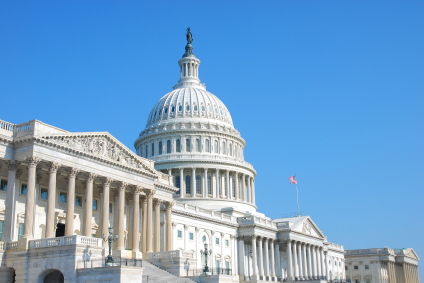
The proposed legislation would give Congress authority over a limited set of major regulations.
Over the past sixty years, the amount of federal regulatory activity, as measured by pages in the Federal Register, has increased more than six-fold. This growth in federal regulation has been facilitated by the legislative practice of delegating regulatory authority and policy discretion to federal agencies. Over time, Congress has turned over ever-greater amounts of regulatory authority to an ever-expanding array of federal agencies. Congress has often had good reasons to delegate. The economic, environmental and other problems Congress has sought to address were are complicated and often necessitate careful study and analysis. Delegation of regulatory authority to expert agencies with the time and expertise to focus on specific problems may help ensure that federal regulations achieve their intended aims.
Delegation may be expedient, or even necessary, but it also has a cost. The delegation of expansive regulatory authority has undermined political accountability for regulatory decisions and has allowed regulatory agencies to adopt policies that do not always align with Congressional intent or contemporary priorities. When Congress delegates broad regulatory authority to executive or independent agencies, it inevitably loses some degree of control over how that authority is exercised. If a federal agency is instructed to adopt measures that serve the public interest or control a given environmental problem as far as is practicable, the federal agency retains substantial discretion to determine what sorts of measures should be adopted and at what cost. Judicial review ensures that agencies play by the rules set out by Congress, but it does not ensure that agencies are pursuing the best policy course. If Congress disagrees with how an agency has exercised its delegated authority, it has relatively few ways to force the agency to alter its course besides enacting corrective legislation. More often, members of Congress criticize agency implementation of legislatively authorized programs, but then do little about it.
In order to restore greater accountability in regulatory policy and curb the consequences of excessive delegation, several members of Congress have proposed legislation to require Congressional approval of the most far-reaching and consequential agency initiatives. The so-called REINS Act – for “Regulations of the Executive in Need of Scrutiny” – would subject the five percent or so of the most burdensome proposed federal regulations to a Congressional approval requirement before they could become effective. In order to ensure prompt consideration of such proposals, the REINS Act would also establish an expedited and time-limited process for Congressional review of these “major” proposals, that is, those which would cost over $100 million annually.
Whether or not the REINS Act would have a substantial effect on the number and type of regulations adopted by federal agencies, it would have a significant effect on the regulatory process. Under the REINS Act, federal regulatory agencies would no longer have the authority to promulgate major rules without Congressional ratification. Members of Congress would also no longer be able to avoid accountability for major regulatory measures, as they would have to vote yay-or-nay on such proposals.
Although I support the REINS Act, I recognize there are strong policy arguments for and against it. Supporters believe this legislation is a necessary corrective to the loss of accountability engendered by broad delegation of legislative-like authority to regulatory agencies. Opponents believe REINS would erect an excessive and unnecessary obstacle to agency rulemaking and unduly insert political considerations into the administrative process. Members of Congress are currently debating these policy positions.
In criticizing the REINS Act, some have also suggested it would be unconstitutional. For example, Sally Katzen, a former Administrator of the Office of Information and Regulatory Affairs, has argued that the act would unduly interfere with the president’s authority to oversee the execution of the laws.
Whatever the policy merits of REINS, the constitutional arguments against it are in error and reflect a misunderstanding of constitutional separation of powers and the relevant Supreme Court case law on the subject. The REINS Act is clearly a constitutional means of controlling delegated power.
The REINS Act is constitutional because federal regulatory agencies have no inherent powers. Article I, section 1 of the Constitution vests all legislative power in the Congress. Federal agencies only have the power to adopt rules governing private conduct if such power has been delegated to them through a valid statutory enactment. As the Supreme Court has explained, “[i]t is axiomatic that an administrative agency’s power to promulgate legislative regulations is limited to the authority delegated by Congress.”
Because Congress is the source of all agency authority to issue regulations governing private conduct, Congress has the constitutional authority to revoke prior delegations of regulatory authority as well as to condition the exercise of such power on compliance with various procedures. Congress has already done this with the Administrative Procedure Act, the Congressional Review Act, and other measures. There is nothing inherently questionable about Congress enacting legislation to limit pre-existing agency authority to promulgate major rules. Whereas Congress may be limited in its ability to constrain the exercise of core executive power, it is not so limited in its ability to place limits on the rulemaking authority it delegates to federal agencies.
Katzen suggests that the REINS Act unduly constrains executive authority, particularly the executive branch’s obligation to “enforce” the laws. Yet the power to “enforce” the laws – that is, the power to take action to see that legal rules are complied with – is distinct from the power to make the rules pursuant to a delegation of authority from Congress. While Congressional efforts to control the former might be suspect, Congressional efforts to constrain the latter are not, so long as other applicable constitutional requirements are met.
Another constitutional objection, Katzen has hinted, concerns whether the REINS Act is compatible with the Supreme Court’s decision in INS v. Chadha. In Chadha, the Court invalidated a unicameral legislative veto procedure through which either house of Congress could overturn an agency action through a simple majority vote. The REINS Act would impose a functionally equivalent constraint on agency authority insofar as a refusal by either house of Congress to pass a resolution of approval would prevent a major rule from taking effect. While the functional effect is similar, the formal process is different, and for constitutional purposes that makes all the difference.
In Chadha, the Court held that it was unconstitutional for a single house of Congress to overturn an administrative action taken pursuant to a valid grant of legislative authority because overturning an otherwise valid administrative action was a legislative act. Under Article I of the Constitution, legislative acts require bicameralism and presentment. That is, both houses of Congress and the president, or super-majorities in both legislative chambers after a presidential veto, are required to pass a statute. Because the unicameral veto did not satisfy this requirement, it was invalid.
The REINS Act does not conflict with Chadha because it does not authorize either house of Congress to overturn an otherwise valid regulation. Rather, the REINS Act prevents a major rule from taking effect until Congress has approved it through a joint resolution that satisfies the bicameralism and presentment requirement. This makes all the difference. As then-judge Stephen Breyer explained in a 1984 lecture, a congressional authorization requirement could replicate the function of the legislative veto invalidated in Chadha without the veto’s constitutional infirmity. By observing the formal requirements for legislation in Article I, he explained, congressional oversight of agency activity could be maintained without violating constitutional principles of separation of powers. Harvard Law School’s Laurence Tribe likewise concluded at the time that such a requirement would be constitutional, even though he also thought it would be a bad idea.
In some respects, the REINS Act is more limited than the unicameral legislative vetoes at issue in Chadha or the congressional approval requirement considered by then-Judge Breyer: the REINS Act would only require congressional approval for so-called “major rules.” The unicameral legislative veto often operated as a replacement for targeted “private bills” affecting the interests of a few. By contrast, those regulations subject to the REINS Act would be only those that have broader impacts on large segments of the country, if not the nation as a whole. Only those rules deemed to be “economically significant” are covered, and such rules are an infrequent, but important, portion of federal regulatory activity.
Delegation of regulatory authority to federal agencies is a fixture of modern administrative law. It is not going away any time soon. But the REINS Act would provide a measured – and wholly constitutional – means to bring under control a practice that undermines political control of and accountability for major regulatory policy decisions.




